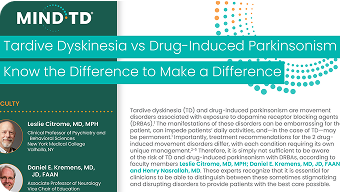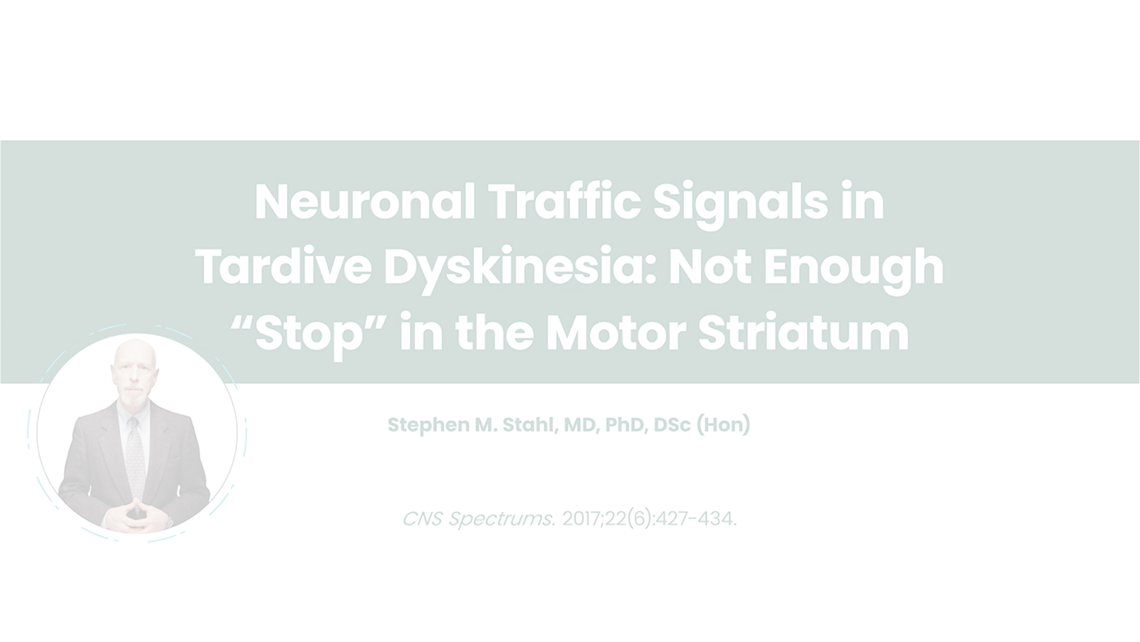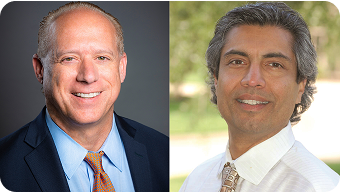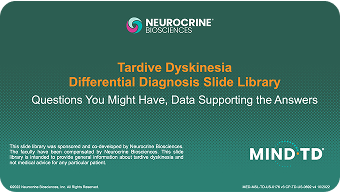

~5 mins
•Sep 2022
Tardive Dyskinesia vs Drug-Induced Parkinsonism: Know the Difference to Make a Difference
Dr Leslie Citrome presents a journal article written by Dr Stephen Stahl that reviews the proposed neurobiology of TD.



~5 mins
•Sep 2022


10+ mins
•Oct 2021


10+ mins
•Dec 2024